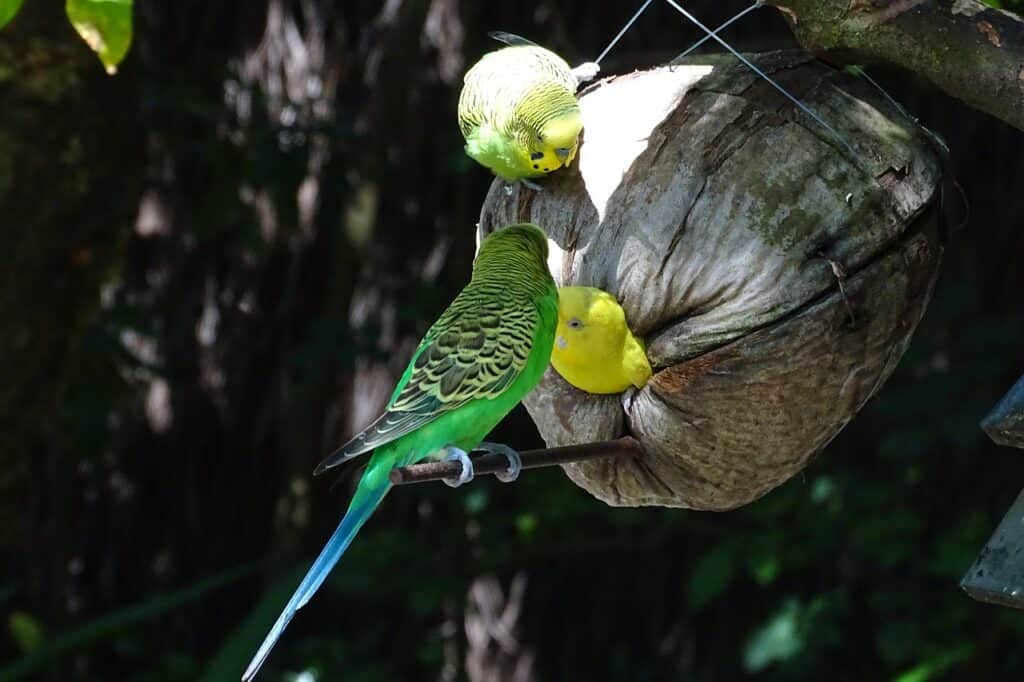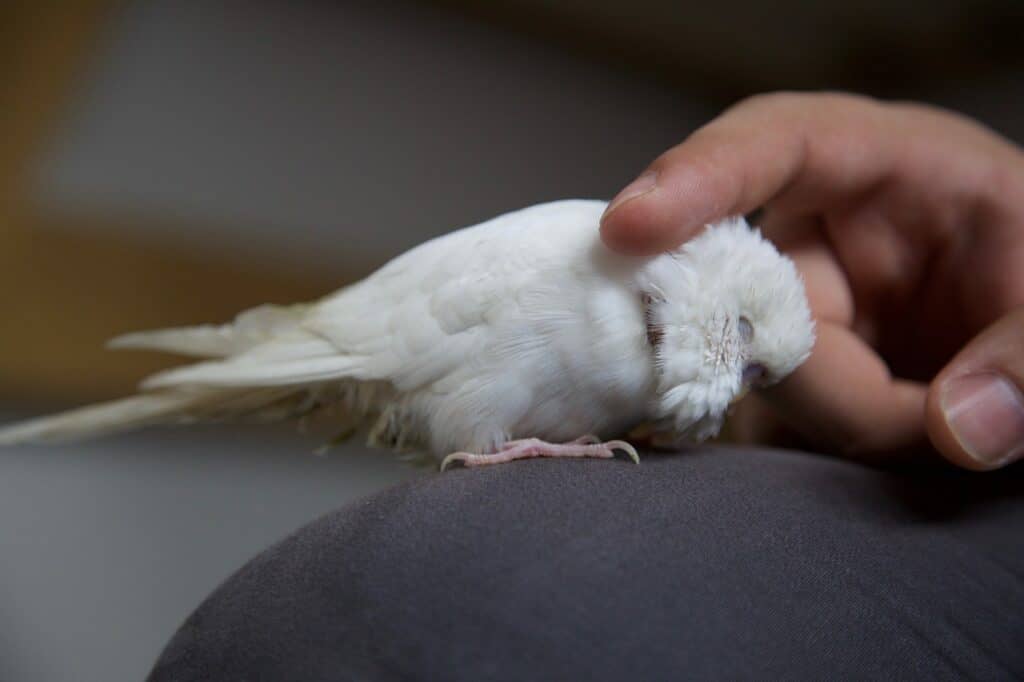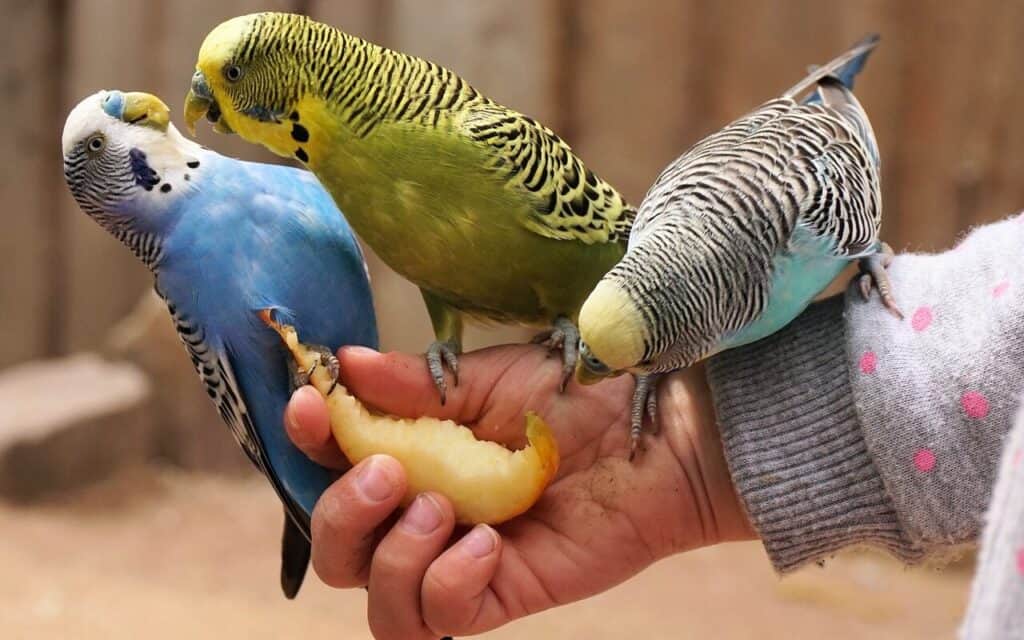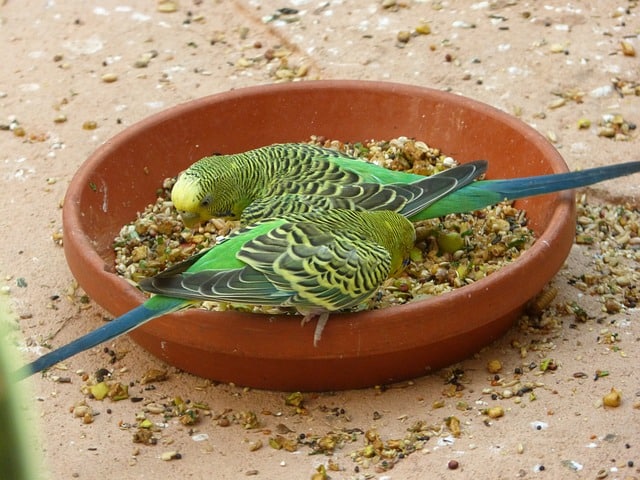Are you a proud budgie owner eagerly awaiting the arrival of new feathered friends? Budgies, also known as parakeets, are delightful pets known for their vibrant colors and cheerful chirping. Breeding budgies can be a rewarding experience, but sometimes, despite our best efforts, they may not breed as expected. In this article, we will explore the possible reasons why your budgies are not breeding and offer insights into how to address these challenges. Let’s dive in and unravel the mysteries behind this common concern.
1. Age and Maturity
Understanding the Reproductive Age of Budgies
Budgies typically reach sexual maturity between 4 to 8 months of age. Before attempting to breed, it is crucial to ensure that your budgies have reached the appropriate age for reproduction. Breeding budgies that are too young or too old can significantly impact their breeding success. Remember, patience is key when it comes to budgie breeding!

2. Gender Identification
Differentiating between Male and Female Budgies
One common reason for unsuccessful breeding is inaccurate gender identification. Determining the gender of budgies can be challenging, especially in young or visually similar individuals. Consulting an avian veterinarian or an experienced budgie breeder is recommended to accurately identify the gender of your budgies. A male and female pair is essential for successful breeding.
You can easily differentiate between male and female by looking at their physical characters. Read our article to uderstand the basic differences between male and female budgie here!

3. Proper Diet and Nutrition
The Role of Nutrition in Budgie Breeding
A well-balanced diet plays a vital role in budgie breeding success. Ensure your budgies receive a nutritious and varied diet consisting of high-quality seeds, fresh fruits, vegetables, and occasional supplements. Providing a calcium-rich diet is particularly important for egg-laying females. Proper nutrition boosts the overall health and reproductive capabilities of your budgies.
4. Breeding Environment
Creating a Suitable Breeding Environment
Budgies thrive in a conducive breeding environment. Make sure the cage size is appropriate for breeding pairs, allowing ample space for movement and nesting. Provide a cozy nesting box filled with soft nesting material, such as shredded paper or coconut fiber. A quiet and stress-free environment away from household disturbances is crucial for breeding success.
5. Bonding and Compatibility
Developing Strong Bonds between Budgie Pairs
Budgies are social creatures that form strong pair bonds. Allowing potential breeding pairs to spend quality time together helps foster a strong bond and increases the chances of successful breeding. Observe their interactions for signs of compatibility, such as mutual preening and regurgitation. Building a solid relationship between your budgies is a key step towards successful breeding.
6. Lighting and Photoperiod
The Influence of Light on Budgie Breeding
Lighting and photoperiod play a significant role in budgie breeding. Providing a consistent light-dark cycle resembling their natural habitat stimulates breeding behavior. A recommended photoperiod for budgie breeding is 12 to 14 hours of daylight and 10 to 12 hours of darkness. Maintaining a consistent lighting schedule can help regulate hormonal activity and increase the chances of successful breeding.
7. Health and Veterinary Care
The Impact of Health on Budgie Breeding
The health of your budgies is paramount for successful breeding. Regular veterinary check-ups ensure any underlying health issues are promptly addressed. Common problems that can affect breeding include nutritional deficiencies, infections, and reproductive disorders. A healthy budgie is more likely to exhibit breeding behavior and produce viable eggs.

8. Stress and Disturbances
Minimizing Stress for Breeding Budgies
Stress and disturbances can significantly hinder budgie breeding. Ensure your budgies are not subjected to loud noises, sudden changes in their environment, or the presence of predators. A calm and stress-free atmosphere encourages natural breeding behavior and enhances the chances of successful egg-laying and hatching.
9. Lack of Privacy
Privacy is essential for budgies during the breeding process. Excessive human interference or placing the cage in a high-traffic area can make them feel exposed and vulnerable. Ensure their cage is positioned in a quiet and secluded spot, away from prying eyes and disturbances. Providing privacy curtains or shields around the cage can further enhance their sense of security.
10. Genetic Factors
Genetics also play a role in budgie breeding. Some budgies may possess genetic traits that make breeding more challenging. These traits can include infertility, reduced fertility rates, or genetic disorders. Breeding from a reputable breeder who prioritizes genetic health can help minimize the chances of encountering such complications.
11. Breeding Season
Budgies have a natural breeding season influenced by daylight hours. In the wild, they typically breed during the spring and summer months. If you are attempting to breed your budgies during the off-season, their breeding instincts may be less pronounced. Consider adjusting the lighting conditions in their environment to mimic the natural seasonal changes, which can stimulate their breeding behavior.
Conclusion
Breeding budgies can be an exciting journey filled with anticipation. By understanding the various factors that can impact budgie breeding, you can take proactive steps to create an optimal environment for successful reproduction. Remember to consider factors such as age, pairing compatibility, nesting area, nutrition, environment, privacy, stress levels, health, genetics, and breeding season. Patience, observation, and a nurturing approach are key to encouraging your budgies to breed and expand your avian family.
You may also like reading 11 Reasons Why Budgies Break And Throw Their Eggs
FAQs
1. How long does it take for budgies to reach breeding age?
Budgies typically reach sexual maturity at around six months to one year old. However, it’s important to note that individual budgies may vary in their development.
2. Can budgies breed if they are kept in separate cages?
Yes, budgies can breed if they are kept in separate cages. However, it’s generally more effective to keep them together in the same cage, as this allows for natural interaction and bonding.
3. What should I feed my budgies to enhance their breeding potential?
To enhance budgie breeding potential, provide a well-balanced diet consisting of high-quality seeds, fresh vegetables, and occasional fruit treats. Calcium supplements can also be beneficial.
4. How can I create a suitable nesting environment for my budgies?
Create a suitable nesting environment by providing a spacious, dark, and secure nest box. Place it in a quiet area away from disturbances to ensure your budgies feel safe and comfortable.
5. When is the best time to attempt breeding budgies?
Budgies have a natural breeding season influenced by daylight hours. Mimicking the natural seasonal changes by adjusting the lighting conditions can stimulate their breeding behavior.












